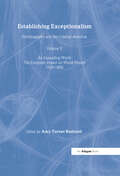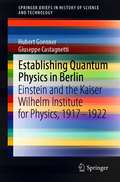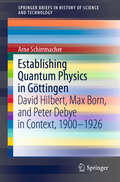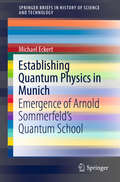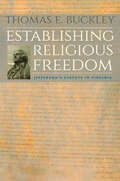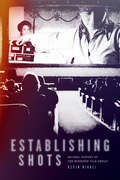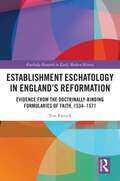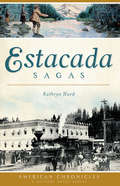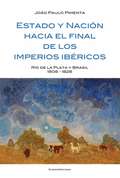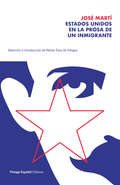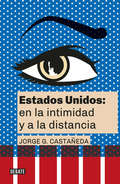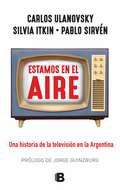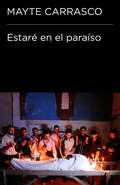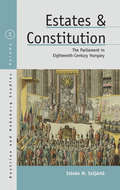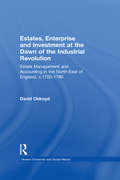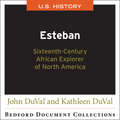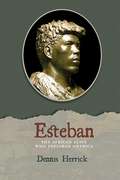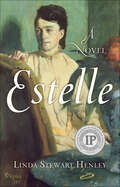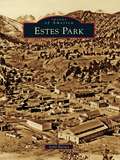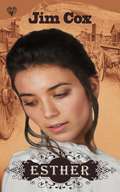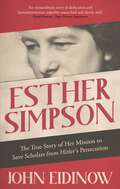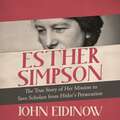- Table View
- List View
Establishing Exceptionalism: Historiography and the Colonial Americas (An Expanding World: The European Impact on World History, 1450 to 1800 #5)
by Amy Turner BushnellSince the 1950s historians of the colonial era in North, South and Central America have extended the frontiers of basic general knowledge enormously; this rich historiographical tradition has generated robust methodological discussions about how to study the European encounter in the light of the experience of the indigenous peoples of the Americas. By bringing together major research reviews by a series of leading scholars, this volume makes it possible to compare directly approaches relating to colonial North America, Brazil, the Spanish borderlands, and the Caribbean.
Establishing Quantum Physics in Berlin: Einstein and the Kaiser Wilhelm Institute for Physics, 1917–1922 (SpringerBriefs in History of Science and Technology)
by Hubert Goenner Giuseppe CastagnettiThis book explores Albert Einstein’s move to Berlin and the establishment of the Kaiser Wilhelm Institute for Physics under his directorship. Einstein’s call to Berlin was supported by a group of prominent physicists, including Fritz Haber, Walter Nernst, Max Planck, Heinrich Rubens, Emil Warburg, and the young astronomer Erwin Freundlich, in the expectation that Einstein and the institute would take the lead in advancing quantum physics in its early phase. Examining both the abortive attempt and the successful opening of the institute in 1917, it also discusses in detail the institute’s activities up to 1922, when Einstein relinquished the directorship, as well as his reasons for stepping down. The final chapter evaluates the institute’s activities and its role in the advancement of physics. In the end, the institute only partially fulfilled the expectations of its promoters because of the waning interest in quantum physics on the part of its director and board, and also because of Einstein’s refusal to exert scientific leadership. The book is part of a series of publications in the SpringerBriefs series on the early network of quantum physics.
Establishing Quantum Physics in Göttingen: David Hilbert, Max Born, and Peter Debye in Context, 1900-1926 (SpringerBriefs in History of Science and Technology)
by Arne SchirrmacherQuantum mechanics – the grandiose theory that describes nature down to the submicroscopic level – was first formulated in Göttingen in 1925. How did this come about and why is it that Göttingen became the pre-eminent location for a revolution in physics? This book is the first to investigate the wide range of factors that were pivotal for quantum physics to be established in Göttingen. These include the process of generational change of physics professors, the hopes of mathematicians seeking new fields of research, and a new understanding of the interplay of experiment, theory and philosophy.
Establishing Quantum Physics in Munich: Emergence of Arnold Sommerfeld’s Quantum School (SpringerBriefs in History of Science and Technology)
by Michael EckertThis book traces the history of Arnold Sommerfeld’s famous “nursery of theoretical physics” at the University of Munich and demonstrates the centrality of developing personal and institutional networks for the emergence of quantum theory. Sommerfeld, originally a mathematician with little interest in theoretical physics, was a somewhat unlikely choice for a chair of theoretical physics when he was appointed in 1906. However, he quickly reoriented his research focus towards physics, forstering a keen interest in experimental research. Possibly even more important for the development of quantum theory in the coming years was his exceptional talent as a charismatic teacher and prolific networker, which turned Munich into a central node in the fast-growing network of quantum physicists in the 1920s. It is no coincidence that the two most talented “child prodigies” of 1920s quantum physics, Wolfgang Pauli and Werner Heisenberg, were his students, nor that by the end of the decade about a dozen of Sommerfeld’s former disciples held chairs in theoretical physics. The book is directed at historians of science and physics, as well as all those interested in the history of science diplomacy and networking.
Establishing Religious Freedom: Jefferson's Statute in Virginia
by Thomas E. BuckleyThe significance of the Virginia Statute for Establishing Religious Freedom goes far beyond the borders of the Old Dominion. Its influence ultimately extended to the Supreme Court’s interpretation of the separation of church and state. In his latest book, Thomas Buckley tells the story of the statute, beginning with its background in the struggles of the colonial dissenters against an oppressive Church of England. When the Revolution forced the issue of religious liberty, Thomas Jefferson drafted his statute and James Madison guided its passage through the state legislature. Displacing an established church by instituting religious freedom, the Virginia statute provided the most substantial guarantees of religious liberty of any state in the new nation.The statute's implementation, however, proved to be problematic. Faced with a mandate for strict separation of church and state--and in an atmosphere of sweeping evangelical Christianity--Virginians clashed over numerous issues, including the legal ownership of church property, the incorporation of churches and religious groups, Sabbath observance, protection for religious groups, Bible reading in school, and divorce laws. Such debates pitted churches against one another and engaged Virginia’s legal system for a century and a half.Fascinating history in itself, the effort to implement Jefferson’s statute has even broader significance in its anticipation of the conflict that would occupy the whole country after the Supreme Court nationalized the religion clause of the First Amendment in the 1940s.
Establishing Shots: An Oral History of the Winnipeg Film Group
by Kevin NikkelA behind-the-scenes account of a cultural institution that made a distinctive mark on Canadian film Establishing Shots captures a diverse group of filmmakers in an immersive oral history of one of the most important and notorious artist-run centres in Canada: the Winnipeg Film Group. Both a deep dive into the life of an internationally renowned institution and an exploration of the growth of an experimental film movement, this richly illustrated collection of interviews produces a vibrant picture of the Winnipeg Film Group’s origins, successes, failures, and ongoing impact. Formed in 1974 as a membership-based film production, training, and exhibition cooperative, the Winnipeg Film Group was part of a wave of artist-run centres funded by the Canada Council for the Arts. Kevin Nikkel’s candid conversations with twenty-nine administrators and filmmakers— including Guy Maddin, Shawna Dempsey, and Matthew Rankin—reveal the precarious path of independent artists, struggles for equality within the industry, and the importance of place in their work. An engaging resource for scholars and historians of Manitoban and Canadian culture and film, Establishing Shots also shows emerging filmmakers how other artists got their start and learned their craft.
Establishment Eschatology in England’s Reformation: Evidence from the Doctrinally-Binding Formularies of Faith, 1534–1571
by Tim PatrickExploring what the early English Protestants came to believe about the afterlife, and how they arrived at their positions, this much-needed book fills a gap in the scholarly literature. In surveying the authorised doctrinal works of the English church through the Reformation period, the progress of eschatological thinking is traced from the earliest days of change to the solidification of the formularies which remain binding across the worldwide Anglican Church today. Fresh observations are made on some well-known texts such as the Books of Common Prayer, Articles of Religion and official Tudor homilies, and these are complemented by commentary on surprisingly understudied documents of the period including primers, catechisms, and the paratexts of the early printed English Bibles. The result is a fascinating study of the English reformers’ navigation past both Roman Catholic and radical anabaptist beliefs, and it shows that their arrival at a relatively barren destination was due in part to a complete switch in theological priorities and in part to a fear of the implications of formally adopting some of the highly contested views. Establishment Eschatology will prove to be an important resource for students and scholars of England’s early modern religious and cultural history.
Estacada Sagas (American Chronicles)
by Kathryn HurdLike the train sitting at the bottom of its lake, the treasures of Estacada’s history often elude the casual observer. From covert operations in a famous hotel to the untold trimmings of logger lore, surprising tales abound in this region. Learn of an explosion that threw men 150 feet away, a nudist club just out of town and a firing range under a high school auditorium. Kathryn Hurd dives into the trials and triumphs of Estacada’s past, bringing unpublished images to light and charting the course of family stories handed down through five generations.
Estado Vegetal: Performance and Plant-Thinking (Art After Nature)
by Giovanni AloiInterdisciplinary essays on Manuela Infante&’s award-winning play explore the relationship between critical plant studies and performance art in the Anthropocene Since its first staging in 2016, Estado Vegetal, Manuela Infante&’s riveting piece of experimental performance art, has expanded philosophical thinking into a fully-fledged artistic inquiry of nonanthropocentric being. Through Infante&’s polyvocal monologue, acted with impetus by Marcela Salinas, plants are charged with an agency capable of uprooting culturally grounded conceptions of the world in the face of incommensurable trauma and loss. This first book dedicated to Infante&’s plant-focused performance features eight essays by scholars, poets, and artists whose practices draw from research fields as disparate as new materialism, anthropogenic feminism, queer studies, and speculative realism. Including an interview with Infante, the full playscript, and stills from the performance, Estado Vegetal: Performance and Plant-Thinking reveals the roles that plants in art can play in productively reconfiguring human–nonhuman relations within current anthropogenic perspectives. Infante&’s performance is a perfect case study and reference point for anyone interested in exploring the complexities of plant-thinking through alternative and experimental avenues. Furthermore, this book is at once a critical plant studies primer and an artistic problematization of the philosophical questions that have been central to the latest multidisciplinary discussions on plant-being. Contributors: Maaike Bleeker, Utrecht U; Lucy Cotter, Portland State U; Prudence Gibson, UNSW Sydney; Michael Marder, U of the Basque Country; Dawn Sanders, U of Gothenburg; Catriona Sandilands, York U; Sibila Sotomayor Van Rysseghem, colectivo LASTESIS; Mandy-Suzanne Wong.
Estado y Nación al final de los imperios ibéricos
by Joao Paulo PimentaEste libro busca responder a la pregunta de cómo fue el proceso deinvención de «lo nacional» dentro del espacio rioplatense a comienzosdel siglo XIX a partir del análisis discursivo de la prensaperiódica de la época. Los estudios sobre «la cuestión nacional» tienen un interés crecientedentro de la historiografía actual y trascienden las fronteras de ladisciplina, ya que cruzan antropología, lingüística, estudios culturalese historia.Este libro intenta dar cuenta del proceso simbólico de disolución de losimperios ibéricos en América y los primeros esbozos de lo que luegoserán los estados nacionales modernos en la región (Argentina, Brasil yUruguay). En un período de transición, en el cual los imperios aún nohabían desaparecido por completo del horizonte político, pero tampocoemergía con claridad un nuevo modo de representación, se analizan aquílos mecanismos específicos de superación del Antiguo Régimen atendiendono solo a las rupturas, sino también a las continuidades en relación alviejo orden, ambas igualmente cruciales y necesarias para laconsolidación de las naciones americanas.
Estados Unidos en la prosa de un inmigrante
by José MartíEsa de racista está siendo una palabra confusa y hay que ponerla en claro. El hombre no tiene ningún derecho especial porque pertenezca a una raza o a otra: dígase hombre, y ya se dicen todos los derechos. De Mi raza. Sin alarde, y como quien satisface una funcio´n natural, depone este pueblo a los ambiciosos, impone a los honrados, expresa su voluntad, resuelve en justicia, sale, sin miedo a la lluvia, a ver en los boletines de los perio´dicos su decisio´n obedecida. De Día de elecciones. Los quince años de destierro que José Martí pasó en Estados Unidos le proporcionaron una perspectiva que abarca tanto el norte como el sur del hemisferio, una visión reflejada en su ensayo Nuestra América. La selección de textos de este volumen imprime a lo nuestro martiano, un giro contemporáneo que incluye a la comunidad hispanoamericana en los Estados Unidos, personificada en Martí durante un período migratorio la segunda mitad del siglo XIX frecuentemente ignorado. José Martí: Estados Unidos en la prosa de un inmigrante recoge textos de las "Escenas Norteamericanas", despachos escritos por Jose´ Marti´ para los diarios La Opinio´n Nacional, de Caracas, La Nacio´n, de Buenos Aires y La Pluma, de Bogota´, entre 1881 y 1886. Incluye también sesenta y cinco fragmentos de La Seccio´n Constante, su columna diaria de variedades para La Opinio´n Nacional, entre 1881 y 1882. Tanto en las piezas mayores como en las mínimas, vemos a un Martí que aprende al mismo tiempo que instruye, que no solo enseña a pensar bien, sino a vivir una vida de autorrealización. Ese doble propósito, expresado en una de sus frases más célebres, sirve de estímulo a la lectura de Martí en nuestro siglo: "Ser culto es el único modo de ser libre". Del prólogo de Néstor Díaz de Villegas.
Estados Unidos: en la intimidad y a la distancia
by Jorge G. CastañedaPensado y escrito originalmente para el público estadounidense, este libro ofrece una radiografía y, a la vez, una pintura de paisaje de Estados Unidos, una obra clave para entender a ese país en un momento crítico de su historia. Termina la segunda década del siglo XXI y la cultura estadounidense es globalmente omnipresente, lo mismo que su injerencia política. Estados Unidos es la primera economía del mundo, la principal potencia militar y el país líder en innovación tecnológica. ¿Cómo es posible que un país tan relativamente joven se haya vuelto así de dominante? ¿Por qué es tan excepcional la trayectoria de Estados Unidos? ¿O... lo es realmente? En este libro, Jorge G. Castañeda presenta una revisión analítica e intuitiva de su experiencia en el país durante el último medio siglo y deja claro por qué los extranjeros pueden ayudar a desentrañar la verdadera naturaleza de Estados Unidos. Basado en su experiencia directa y en un amplio conocimiento de las más diversas fuentes, Castañeda examina los aspectos fundamentales de la historia y la cultura estadounidenses, tanto los luminosos como los problemáticos: el surgimiento de la primera clase media del mundo, la democracia y sus descontentos, el sincretismo cultural, el humor autocrítico, el genio innovador, la hipocresía de sus políticas migratorias y antidrogas, la pena de muerte, el racismo, la religión y el diseño inteligente. Pensado y escrito originalmente para el público estadounidense, este libro ofrece una radiografía y, a la vez, una pintura de paisaje de Estados Unidos, una obra clave para entender a ese país en un momento crítico de su historia. «Este libro es el resultado de muchos años de vivir, estudiar, madurar, dar clases y conversar en Estados Unidos. Surge de tratar con las autoridades estadounidenses de gobierno a gobierno, y de sociedad civil a sociedad civil. Durante el último medio siglo, he disfrutado la amistad cercana y duradera de muchos norteamericanos, y he observado con ellos la evolución de su país en la intimidad y a la distancia.»
Estamos en el aire: Una historia de la television en la Argentina
by Carlos Ulanovsky Pablo Sirvén Silvia Itkin<P>En 17 de octubre de 1951, tres cámaras apuntaron desde el Banco Nación hacia los balcones de la Casa Rosada para registrar la nada casual coincidencia entre el nacimiento ese día de la televisión argentina y el masivo acto con el que el peronismo celebraba su cumpleaños N° 6 en la Plaza de Mayo. Fue el último al que asistió Evita, ya entonces gravemente enferma, y artífice de la llegada de ese nuevo medio que encargó desarrollar a su antiguo empleador y mentor artístico en Radio Belgrano, don Jaime Yankelevich. Sesenta y cinco años más tarde, y a diecisiete de su primera edición, Estamos en el aire. Una historia de la televisión en la Argentina, sigue siendo el libro que mejor registra el recorrido del más popular de los medios de comunicación a lo largo del febril siglo XX. <P> Enorme tarea de rescate de cientos de personajes, programas, acontecimientos políticos y culturales que quedaron grabados para siempre en el recuerdo de varias generaciones. Los grandes éxitos y los grandes fracasos, las anécdotas más divertidas, los ratings récords, las biografías que no pueden faltar; todo está en Estamos en el aire, la enciclopedia más completa sobre la TV argentina contada por tres expertos/testigos/televidentes de esa epopeya audiovisual. <P>Carlos Ulanovsky narra en la sección “Fundación, estilos y costumbres” el período pionero, entre aquel octubre del 51 y 1966. Silvia Itkin desarrolla dos épocas cruciales: la más dorada, desde el inicio de 1967, hasta la más sombría a fines de 1982, bajo el título “Años de oro. Años de barro”. Pablo Sirvén relata en “Del fin de la inocencia a la globalización” la etapa que va desde el luminoso 1983 hasta el más desencantado 1998, que ya preanunciaba la hecatombe socioeconómica del nuevo siglo/milenio que despuntaba. <P>En esta nueva edición, se agregan tres epílogos de cada autor para revisar qué ha sido de esos años historiados en relación al presente. Textos que iluminan respecto del tipo de televidentes en que nos hemos convertido en la compleja era de las redes sociales y de las variadas y complicadas, pero también estimulantes realidades reales y virtuales que nos atraviesan como sociedad.
Estaré en el paraíso (Colección Endebate #Volumen)
by Mayte CarrascoUna cuidada antología de la obra de Augusto Monterroso, máximo exponente del género del microrrelato. Se presenta aquí una cuidada antología que traza un camino de ida y vuelta sobre la obra de Augusto Monterroso, amigo de las cosas irónicamente simples y máxima figura del género más breve de la literatura: el microrrelato. Articulado en dos bloques complementarios, este volumen recoge los cuentos y ensayos más narrativos del autor, proporcionando un viaje a la felicidad y a la sencillez, a la gracia y a la discreción, al humorismo y a la tristeza. Un tímido homenaje al más refinado de los escritores hispanoamericanos. Gabriel García Márquez dijo...«Hay que leerlo manos arriba. Su peligrosidad se funda en la sabiduría y la belleza mortífera de la falta de seriedad.»
Estates and Constitution: The Parliament in Eighteenth-Century Hungary (Austrian and Habsburg Studies #30)
by István M. SzijártóAcross eighteenth-century Europe, political power resided overwhelmingly with absolute monarchs, with notable exceptions including the much-studied British Parliament as well as the frequently overlooked Hungarian Diet, which placed serious constraints on royal power and broadened opportunities for political participation. Estates and Constitution provides a rich account of Hungarian politics during this period, restoring the Diet to its rightful place as one of the era’s major innovations in government. István M. Szijártó traces the religious, economic, and partisan forces that shaped the Diet, putting its historical significance in international perspective.
Estates, Enterprise and Investment at the Dawn of the Industrial Revolution: Estate Management and Accounting in the North-East of England, c.1700-1780 (Modern Economic and Social History)
by David OldroydAt the beginning of the eighteenth century the landed estate represented the largest and most clearly defined type of business organisation in existence in pre-industrial England. Given the need for capital, wayleave rights and a ready supply of coal, iron and other raw materials it is unsurprising that most historians tend to place Britain's formative industrial development on such estates where all these elements were available. Yet despite this consensus, relatively little attention has been paid to the management and accountancy practices of these estates, which have the potential to reveal much about the development of the industrial revolution. In this study the management practice on estates in the north-east of England (c.1700-1780) is examined through the lens of the accounts and supporting documentation. Accounts encompassed every aspect of estate operations from the housekeeper's groceries to the lead and coal mines, and thus provide direct evidence of the underlying management systems over a diverse range of activities. The information flows on estates serve as an excellent medium for testing hypotheses concerning the management of estates and the attitudes of their owners and stewards. Focusing on the surviving accounts of three leading gentry families, Bowes, Ridley and Cotesworth, who came from contrasting social backgrounds, two main issues are addressed. The first concerns the productivity of estates. Were estates managed efficiently as productive investments, and more specifically, to what extent can the landowners and their stewards legitimately be described as capitalists? The second, related, question asks in what ways did accounting aid managerial activity at this early stage of industrial development? These are the central questions this book addresses through examination of the nature and function of accounts within the organisation. By looking in detail at records from this crucial region during the period of transition to an industrial
Esteban: Sixteenth-Century African Explorer of North America
by Kathleen DuVal John DuValThe documents in this collection introduce the story of Esteban, one of the first people of African descent to visit what today is the United States. Students will engage with a wide range of primary sources, constructing an argument based on the central question: What do descriptions of Esteban’s explorations tell us about slavery, race, and first encounters in sixteenth-century North America? Given the limited nature of these sources, what can we never know? Students are guided in their analyses of the documents by a learning objective, central question, historical background, source headnotes, source questions, project questions and suggestions for further research. Through their work with these sources, they will gain a deeper awareness of the diversity of the American experience, a more complete understanding of the present in an historically-based context, an enhanced ability to read, interpret, assess, and contextualize primary sources, and practice explaining historical change over time.
Esteban: The African Slave Who Explored America
by Dennis HerrickWhen Pueblo Indians say, &“The first white man our people saw was a black man,&” they are referring to Esteban, who came to New Mexico in 1539. After centuries of negative portrayals, this book highlights Esteban&’s importance in America&’s early history.Books about the history of the American West have ignored Esteban or belittled his importance, often using his slave nickname, Estebanico. What little we know about Esteban comes from Álvar Núñez Cabeza de Vaca and other Spanish chroniclers, whose condescension toward the African slave has carried over into most history books. In this work Herrick dispels the myths and outright lies about Esteban. His biography emphasizes Esteban rather than the Spaniards whose exploits are often exaggerated and jingoistic in the sixteenth-century chronicles. He gives Esteban full credit for his courage and his skill as a linguist and cultural intermediary who was trusted and respected by Indians from many tribes across the continent.
Estelle: A Novel
by Linda Stewart HenleyWhen Edgar Degas visits his French Creole relatives in New Orleans from 1872 to ’73, Estelle, his cousin and sister-in-law, encourages the artist—who has not yet achieved recognition and struggles to find inspiration—to paint portraits of their family members. In 1970, Anne Gautier, a young artist, finds connections between her ancestors and Degas while renovating the New Orleans house she has inherited. When Anne finds two identical portraits of Estelle, she discovers disturbing truths that change her life as she searches for meaningful artistic expression—just as Degas did one hundred years earlier. A gripping historical novel told by two women living a century apart, Estelle combines mystery, family saga, art, and romance in its exploration of the man Degas was before he became the artist famous around the world today.
Estero Bay
by Elisabeth MacdonaldLucas Morgan had finally ended his wandering. In Estero Bay, California, he'd found peace and happiness. But he despaired of ever gaining the love and trust of fiery Californio Consuelo Estrada. How could he ever convince her that he was worthy of her love? Consuelo tried to feel compassion for shipwrecked Anglo Lucas Morgan, but she could barely stand to look at him. His kind had destroyed California with their insatiable hunger for land and riches, and' Lucas was no different. So why did it break her heart when he proved her right?
Estes Park
by Sybil BarnesEstes Park is a small village nestled in the north central mountains of Colorado. The earliest settlers were homesteaders who arrived to "prove up" in the 1870s and soon discovered that providing lodging and entertainment for outdoor adventurers and tourists looking for a respite from city life could provide a more reliable revenue stream than farming and ranching. By 1905, the town was platted and several hotels provided modern accommodations. When Rocky Mountain National Park was created in 1915, Estes Park became the eastern gateway and continues to be the first stop for approximately 2.5 million visitors annually. From an initial population of less than 200, the town has grown to almost 10,000 year-round residents, many of whom still make their living providing goods and services to visitors from as near as Denver and as far away as Nepal.
Esther
by Jim CoxIn the mid 1800s, a divorced woman has few options. But Esther Taylor is no ordinary woman. Leaving an abusive husband while trying to keep her two children safe is just the beginning. Esther makes her way in the world by virtue of her wit and strong work ethic. Whether working as a cook at a riverside café or as a ranch hand at round-ups, Esther’s pioneer spirit and gut-wrenching determination to move forward are inspirational and a font of strength to her children, Mark and Joan. When the Civil War erupts, Esther’s fortitude is tested in ways she never imagined with the disappearance of both her newfound love and her son amid the carnage of the war. Ever relentless, Esther searches for her scattered family. Can her indomitable spirit bear the realities of love and war to triumph one more time?
Esther Simpson: The True Story of her Mission to Save Scholars from Hitler's Persecution
by John EidinowMany of the academic refugees Esther Simpson helped rescue are well remembered. But who was she and why has history forgotten her?This is the story of Esther Simpson, a woman whose dedication to the cause of freedom in science and learning left an indelible mark on the cultural and intellectual landscape of the modern world.Esther Simpson - Tess to her friends - devoted her life to resettling academic refugees, whom she thought of as her family. By the end of her life, Simpson could count among her 'children' sixteen Nobel Prize winners, eighteen Knights, seventy-four fellows of the Royal Society, thirty-four fellows of the British Academy. Her 'children' made a major contribution to Allied victory in World War Two.From a humble upbringing in Leeds to Russian immigrant parents, Simpson took on secretarial roles that saw her move to Paris, Vienna and Geneva. But when Hitler assumed power in 1933, she took a job in London at the Academic Assistance Council, newly set up to rescue displaced German scholars, and found her lifelong calling.For a woman who befriended so many and such eminent 'children', surprisingly little is known of her. This book is a study of Esther Simpson: who she was and how she lived, what moved her to take up and never to relinquish her calling, her impact on the world, and the historical context that helped shape her achievements.
Esther Simpson: The True Story of her Mission to Save Scholars from Hitler's Persecution
by John EidinowMany of the academic refugees Esther Simpson helped rescue are well remembered. But who was she and why has history forgotten her?This is the story of Esther Simpson, a woman whose dedication to the cause of freedom in science and learning left an indelible mark on the cultural and intellectual landscape of the modern world.Esther Simpson - Tess to her friends - devoted her life to resettling academic refugees, whom she thought of as her family. By the end of her life, Simpson could count among her 'children' sixteen Nobel Prize winners, eighteen Knights, seventy-four fellows of the Royal Society, thirty-four fellows of the British Academy. Her 'children' made a major contribution to Allied victory in World War Two.From a humble upbringing in Leeds to Russian immigrant parents, Simpson took on secretarial roles that saw her move to Paris, Vienna and Geneva. But when Hitler assumed power in 1933, she took a job in London at the Academic Assistance Council, newly set up to rescue displaced German scholars, and found her lifelong calling.For a woman who befriended so many and such eminent 'children', surprisingly little is known of her. This book is a study of Esther Simpson: who she was and how she lived, what moved her to take up and never to relinquish her calling, her impact on the world, and the historical context that helped shape her achievements.
Esther Simpson: The True Story of her Mission to Save Scholars from Hitler's Persecution
by John EidinowMany of the academic refugees Esther Simpson helped rescue are well remembered. But who was she and why has history forgotten her?This is the story of Esther Simpson, a woman whose dedication to the cause of freedom in science and learning left an indelible mark on the cultural and intellectual landscape of the modern world.Esther Simpson - Tess to her friends - devoted her life to resettling academic refugees, whom she thought of as her family. By the end of her life, Simpson could count among her 'children' sixteen Nobel Prize winners, eighteen Knights, seventy-four fellows of the Royal Society, thirty-four fellows of the British Academy. Her 'children' made a major contribution to Allied victory in World War Two.From a humble upbringing in Leeds to Russian immigrant parents, Simpson took on secretarial roles that saw her move to Paris, Vienna and Geneva. But when Hitler assumed power in 1933, she took a job in London at the Academic Assistance Council, newly set up to rescue displaced German scholars, and found her lifelong calling.For a woman who befriended so many and such eminent 'children', surprisingly little is known of her. This book is a study of Esther Simpson: who she was and how she lived, what moved her to take up and never to relinquish her calling, her impact on the world, and the historical context that helped shape her achievements.
